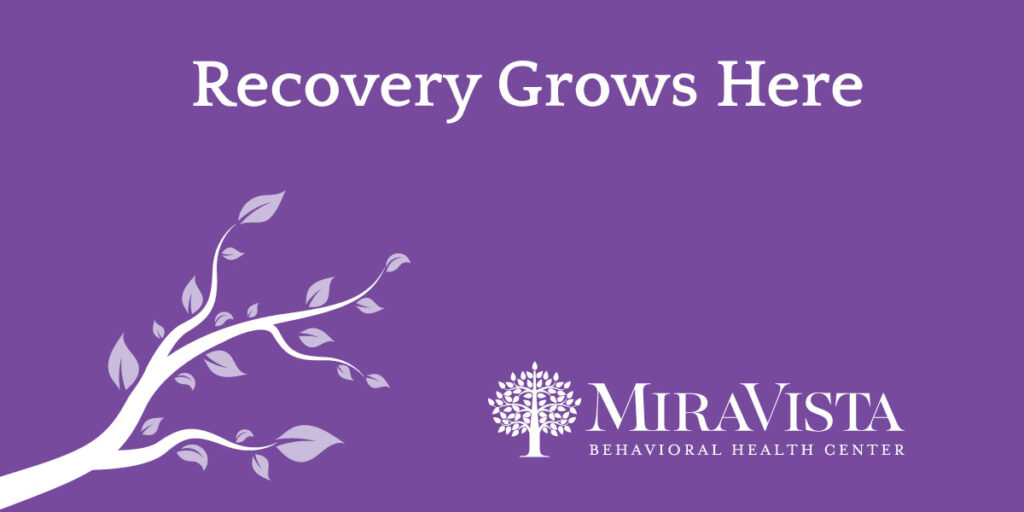Addiction is a disease, but it is one that can be managed successfully with evidence-based treatment that is individualized and person-centered. This is a message highlighted across the country every September during National Recovery Month and daily at MiraVista Behavioral Health Center whose substance use services include both inpatient to support withdrawal, that is referred to as detoxification, as well as early recovery, and outpatient for medication-assisted treatment and counseling for sustained recovery.
Kristen P., a 40-year-old Berkshire County resident who became addicted to alcohol and other drugs after the death of her grandmother nearly 10 years ago, sought inpatient addiction treatment recently at MiraVista that included both Acute Treatment Services (ATS) for detoxification and Clinical Stabilization Services (CSS) to help with the transition back into community life as a person in recovery.
It was not the first time she sought such treatment, but she said what helped her through was staff, some in long-term recovery, with their own lived experience who made her feel welcomed and understood.
“I have struggled for years with relapsing and have done detoxification five or six times prior, and CSS, four times,” Kristen said. “I wanted to try somewhere new with a program I was not familiar with and found MiraVista on the internet. I called, did an intake and came in the next day.”
She added she was “definitely determined to go through the whole detox and the staff in that unit made it pretty easy for me and then I tried CSS.”
She said the transition program gave her new insight into recovery and addiction. Its curriculum includes dialectical behavior therapy (DBT) that helps with learning and applying behavioral skills to better manage one’s life, free-ranging discussions to facilitate sharing among peers and a variety of educational sessions.
“It is a structured program and I definitely liked that about it,” Kristen said. “It keeps you busy and doesn’t leave you a lot of time to think and self-destruct.”
She said she found the CSS program more informative than others with fewer “generalizations.”
“I felt in MiraVista’s recovery program I got a lot more information that I could concretely put into practice,” Kristen said. “I do like things black-and-white. I am not good at reading between the lines. I come up with my own solutions which obviously haven’t helped me.”
She added that she found it “very helpful that many of the program’s staff are in recovery and can relate in a way that people, who don’t deal with addiction or haven’t dealt with it, just can’t.”
She cited the tobacco education group as the best she has attended.
“I have been a smoker for a long time and there was factual information I did not know,” Kristen said. “I want to quit anyway as part of this and their program solidified it more for me.”
Kristen said that, slowly over the years, her addiction “progressed to the point where my life was completely unmanageable.” She said her time at MiraVista reinforced the realization that “you can’t do recovery on your own.”
“There is only one way addiction is going to end if you don’t get help, it is jail, institutions or death and death is all too common now with different drugs and additives,” she said when asked about encouraging others to recognize and seek help for their addiction.
“We don’t realize what we are getting into until it is too late.”
September is National Recovery Month.
MiraVista’s recovery programs for substance use include Acute Treatment Services (detox), Clinical Stabilization Services (post-detox), and outpatient services that offer Medication Supported Recovery, counseling, day treatment programming and a variety of relevant groups.
Find help and hope here: www.miravistabhc.care/413-701-2600

